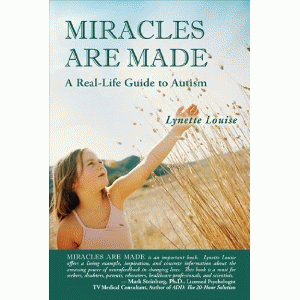"Well, the heart calls, and the mind obeys." -Lose Again by Songwriter Karla Bonoff
In one of the playful dialogues in mathematician Rudy Rucker's book, The Fourth Dimension: A Guided Tour to Higher Dimensions, it is stated, "Mind is everywhere and you have no mind at all." This entire world, including the house of the world that we call the universe, is mind. It is also life, light, and love.
Since intelligence is non-local, there is as much in the heart as there is in the head. Indeed, Episcopalian Priest, Cynthia Bourgeault, says the essential Christian Wisdom Teachings believe the heart is an organ of spiritual perception. This tradition is way beyond the brain-centered intelligence of most churches, in which dogma filled head teachings are the rule of thumb. In this sense, dogma is "ideal-istic" and very limiting. Yet, as Goethe sang, "Give them the stone of Sophia (Wisdom) and you'll find philosophy gone. And what's left? The Stone!" (The stone in this case being the goal of the alchemists.)
Wisdom according to Goethe is more heart-based than head-based.
What are some of the elements of heart intelligence? Obviously, we would pick out traits such as compassion, deep feeling, intuition, love, a sense of connection, and a sense of unity. Perhaps you can associate heart intelligence with other values as well.
It is interesting that the heart is situated a little left of center in the chest. This may be why what we call the "left wing" in politics are the ones more open to taking care of people medically, socially, and even ecologically. They have more heart, more caring, a deeper sense of relationship. Interestingly, in the brain, the left side interacts with the right side of the body while the right side of the brain interacts primarily with the body's left. Both "sides" must balance to have the full brain function necessary to a comprehensive life.
As Dylan sings in his "Desolation Row", "I become my enemy in the instant that I preached." This is counter to heart intelligence, which unites rather than divides. Those with more heart are much more likely to embrace the world and, thus, understand its holistic rather than linear nature. Their brains are richer for the hearts that guide them. Indeed, they are more likely to embrace the opposites than raise war against them.
One actual person who is saturated with Heart Intelligence is Lynette Louise, author of The WingMaker and Miracles are Made. Lynette is a healer, and counselor of families dealing with members on the Autism spectrum, or other debilitating childhood conditions. She blends personal and family experience with professional knowledge in a beautiful way as she advocates for the use of neurofeedback. She establishes deep and playful bonds with her clients before, during, and after using the technology to influence their brain wave patterns. Her job is holistic in that her work is not just to help the autistic child, but the entire family.
Neurofeedback is a non-invasive therapy that guides the brain and body-mind to establish healthy balance. It does not introduce electric waves into the brain manipulatively, but, rather, responds with rewards to the brain's own constructive activities, thus strengthening them. Lynette uses it in conjunction with intensive bonding between the healer and the healed, play therapy, and deep regard for the role and wisdom of the parents. Again, she works from the heart and puts her trust in the inner intelligence and wisdom of those she works with.
The following short YouTube film will provide you with a great introduction to the work Lynette does:
In Lynette's book, The WingMaker, she provides us with a true story from her practice. The primary character, Reazon, has Cerebral Palsy and has spent her life in a wheelchair, surrounded by siblings that play while her mother works hard to meet Reazon's basic needs. Reazon's dream is to play and be "normal" so that her mother won't have to work so hard. Happy-Ness then arrives and teaches the art of play and biofeedback for the brain so that Reazon might get her wish.
This is an inspiring short book on leading a severely handicapped child toward self-healing. Neurofeedback entails empowering the child, or adult as the case might be. As the technique goes, no one is forcing change. Rather, the child receiving feedback is changing herself. Yes, our brains and our hearts are instruments of self-change.
(Note: You can view every article as one long page if you sign up as an Advocate Member, or higher).





